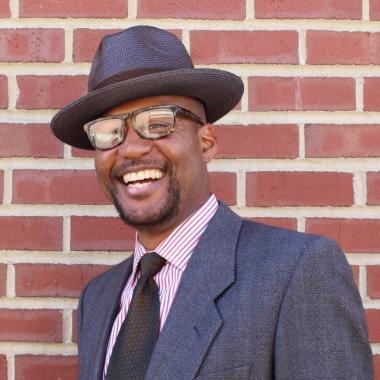Mic Drop | Reparations: How Philanthropy Can Build A Culture of Repair
- Aria Florant
Growing up, my dad always said, “You do what you know is right.” Every night, my brother and I would sit around the dinner table and talk about our day. If my dad ever felt we were acting without integrity, we got a talking to. In the white town where we grew up, this was as much about safety as it was about character. Now, I take a broader lesson from it – integrity is critical to being whole.
In my work at Liberation Ventures (LV), I’ve realized this applies to our nation as much as it does to individuals. At LV, we are building the power to win federal, comprehensive reparations for Black Americans as a field catalyst in the movement. Our definition of reparations is expansive, and not just about money: we believe that full repair requires reckoning, acknowledgement, accountability, and redress. This means that reparations policy is just as much about curriculum, monuments, and memorials as it is about compensation. Our north star is not only passing federal reparations policy, but also building a Culture of Repair.
Philanthropy has a critical role to play. Foundations can look in the mirror – and implement processes to repair their own history of disinvestment, extractive grantmaking, wealth hoarding, and in many cases exploitation of people and land that built their endowment in the first place. In addition, foundations can invest in the brilliant grassroots organizations building momentum across the country. Some are legacy organizations like N’COBRA who have been doing the work for decades, while newcomers like Get Free, Media 2070, and Redress Movement are expanding what’s possible today. Some focus on reparations for chattel slavery, while others aim to repair slavery’s lasting legacies; from redlining to the war on drugs. Some are place-based organizations advocating for local policy, and others are building momentum at the national level. All are picking up the baton of a movement that is older than emancipation – a movement whose time has come.
I often talk to people who are curious or even skeptical about reparations. They say: why are reparations necessary – can’t we do this another way? Will we ever be able to build enough public support?
Over the last few decades, we have tried to close the racial wealth gap and disrupt the anti-Blackness that pervades American culture. Yet three-fifths of the disparity in annual wealth flow between white and Black families is driven by intergenerational wealth transfer. To get serious about eliminating that disparity, we have to address its largest driver.
For those who are worried about building public support, I have good news. Liberation Ventures conducted a meta analysis of every poll on reparations since 1996, and support has doubled in that time.
As a country, we’re finally starting to realize that when Black people thrive, America thrives – and that a Culture of Repair is the only way to achieve a true multiracial democracy. At Liberation Ventures, we believe that reparations is not just an economic project, but a political and cultural project as well. It’s not just about the past; It’s about creating a just future.
In order for our nation to become whole, we must do what we know is right. This work requires and benefits not just Black people, but all of us. It is time to build a Culture of Repair. It is time for reparations.









